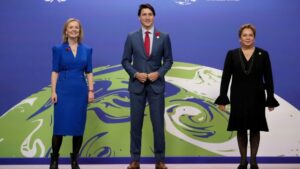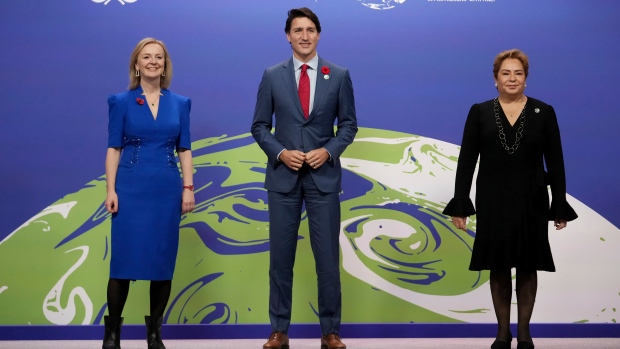Trudeau’s pledge to cap oil and gas emissions

TORONTO – Canada’s pressing for a breakthrough in the global fight against climate change. This is at least in words, since in the plan of the liberal government there remain fundamental contradictions that have yet to be resolved. Today Justin Trudeau, after attending the G20 summit in Rome, reached Glasgow for the official start of the 26th UN climate summit.
This is a meeting that takes place annually but which provides for the participation of heads of state and government every five: the summit was scheduled for 2020 but had been postponed by a year due to the Covid-19 pandemic. In any case, the Prime Minister, in his speech today, underlined what are the prerogatives of his government’s environmental plan and at the same time urged the entire international community to a greater commitment to the fight against global warming.
The situation, however, is much more complex than it may seem. The environmental record of its executive, in power since 2015, is not entirely linear in this sense. After inheriting a catastrophic situation from the previous Harper administration – Canada under the conservative prime minister was the first country to abjure the Kyoto Protocol – Trudeau tried to realign the parameters of our country with those of other international partners. In fact – according to the same data from the Ministry of the Environment – Canada since 2016 has increased its greenhouse gas emissions by 3 percent, the highest value of the G7 countries.
In addition to this, some choices of the executive – such as that of focusing once again on the development of pipelines for the transport of crude oil, have been harshly criticized by environmentalists. But Trudeau, in his electoral platform presented last summer, promised to aim for a “green” turn within a short time.
Canada officially presented its targets to the United Nations: to produce between 40 and 45 percent less 2005 emissions by 2030, while the previous target was just 30 percent.
But that’s not all. Trudeau promised that very stringent restrictions will be activated for the oil sector and for that of the extraction of natural gas, with a system of maximum limits to be respected, which will be continuously reviewed and lowered, until 2050, when in these two sectors the fateful zero quota in emissions is reached.
An ambitious plan, that of the prime minister, which will necessarily have to clash with reality, with the resistance of numerous production sectors of the country and which, at the same time, will have to be accompanied by a program of targeted investments for the production of green energy – primarily wind and solar – which will affect the entire national economy.
As for the results achieved at the G20 in Rome, Trudeau’s judgment is in chiaroscuro. “There is no doubt that Canada and other countries would have liked to see greater engagement in the fight against climate change, but at the same time we have seen significant progress.”



